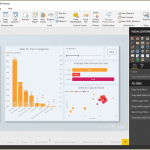How to Spend With a Purpose
There are two sides to the spending spectrum. Either you spend a bunch on all kinds of things, or you don’t spend at all and you pinch pennies like they’re going out of style. Neither method works for the long-term. In reality, you can’t hoard your money and be happy, but you can save it while spending with a purpose.
The term “purpose” has a lot possible meanings. Let’s explore how you can start spending smarter and be happier and wealthier as a result.
3 Ways to Spend Your Money With a Purpose
The first thing everyone should understand before they start spending with a purpose, is that money is just a tool. Having it does not guarantee you happiness, or define your fashion and style. Instead, it’s a tool to accomplish these things.
When you think of it like that, spending is a natural use of this tool. Purpose comes into play when you realize that you need the right tool for the job. You wouldn’t use a hammer when a wrench would work better, now would you?
Here’s how you can define your purpose and spend accordingly:
1. Selective Frugality
Politics aside, Ivanka Trump has a very smart piece of advice for us about spending. It may be difficult to imagine someone that wealthy knowing anything about how middle class people can spend better, but it’s a solid piece of advice nonetheless.
The story about her comes from an article where she describes a lesson she learned at the age of 14. In the story, she talks about her mother telling her she could have a first class flight if she paid for the upgrade.
From this experience, Ivanka said:
“Be judicious when deciding where and how to spend your money. Invest wisely and splurge selectively.”
This is great advice for those who want purpose in their spending. Splurging is fine, if it makes sense and you’re selective with how you do it. The same goes with spending. If you’re investing in something that provides a high value back either in money or happiness, then it’s a wise purchase.
This “selective frugality” ensures that your purchases are backed by reasons and decision-making. It removes the potential for blindly buying things at impulse.
2. Asking The Right Questions
Evaluating your spending comes with asking the right questions. To do that, you’re also going to see some really great information to make sure you’re informed. Depending on your financial situation, spending may seem out of the question, but you can still find happiness in even the smallest of purchases.
Simply ask yourself these questions:
- Will this bring me happiness for more than a few days?
- Can I get a lot of value out of this?
- Will this purchase bring me closer or further from my goals?
- In a year, will this purchase be collecting dust?
These will help you decide if you love something, or if you’re just infatuated with the idea of it. There’s a major difference in the long-term worth.
3. Balance Investments and Bargains
When you’re spending, it can go towards an investment or a bargain. Investments provide you with a return on your purchase. It can be in the form of money, but mostly it’s in the form of overall enjoyment and benefit in your daily life.
Every purchase you make can be filed into one of these two categories. If you’re buying something that’s on sale, then you’ve discovered a bargain. Where the balance come from, is in deciding how you’ll make the distinction.
For example, cheap furniture could be considered a bargain, but it’s not a sound investment because you’ll have to replace it faster than you would if you had bought something of higher quality.
Thinking about your purchases in terms of bargains and investments will help you understand the purpose and reasoning behind your purchase, and therefore provide you with a sound foundation for making that decision.
Final Thoughts
Spending is something that everyone does differently, but if you spend with a purpose, then you spend smarter. Ultimately, this saves you money in the long run by not making frivolous or impulse purchases, and instead, taking a measured approach to your finances.
How do you define purpose in your spending? Let us know in the comments!
About the author:
Jacque Payet is a financial expert who has written for countless finance blogs and websites. He enjoys sharing his knowledge and experience with people who need advice.











![Origin of the #Hashtag in Social Media [Infographic]](https://technofaq.org/wp-content/uploads/2017/10/hashtag-origins-infographic-150x150.jpg)





